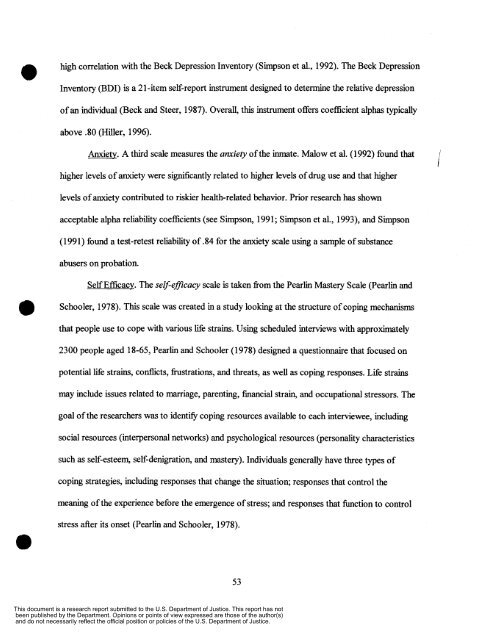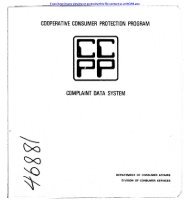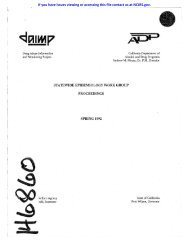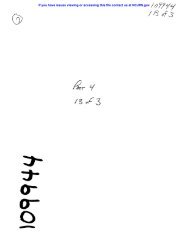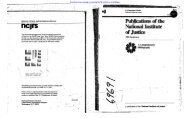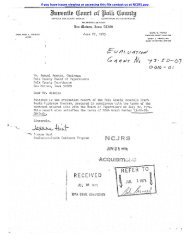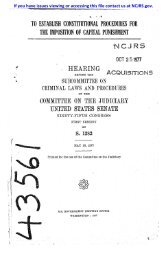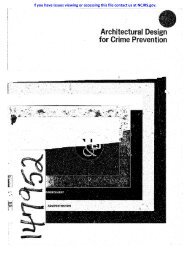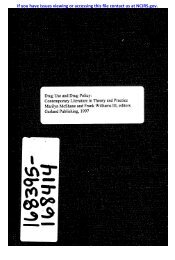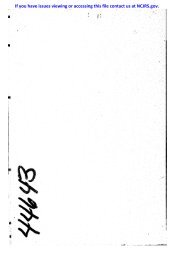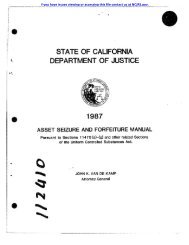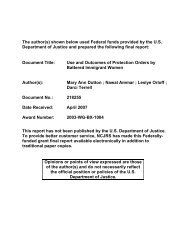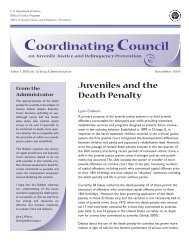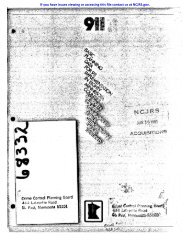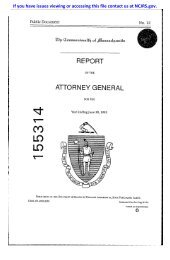0 - National Criminal Justice Reference Service
0 - National Criminal Justice Reference Service
0 - National Criminal Justice Reference Service
Create successful ePaper yourself
Turn your PDF publications into a flip-book with our unique Google optimized e-Paper software.
e<br />
high correlation with the Beck Depression Inventory (Simpson et al., 1992). The Beck Depression<br />
Inventory (BDI) is a 21-item self-report instrument designed to determine tbe relative depression<br />
of an individual (Beck and Steer, 1987). Overall, this instrument offers coefficient alphas typically<br />
above .SO (Hiller, 1996).<br />
Anxiety. A third scale measures the anxiety of the inmate. Malow et al. (1 992) found that<br />
higher levels of anxiety were significantly related to higher levels of drug use and that higher<br />
i<br />
levels of anxiety contributed to riskier health-related behavior. Prior research has shown<br />
acceptable alpha reliability coefficients (see Simpson, 1991; Simpson et al., 1993), and Simpson<br />
(1991) found a test-retest reliability of .84 for the anxiety scale using a sample of substance<br />
abusers on probation.<br />
0<br />
Self Efficacy. The self-efficacy scale is taken fiom the Pearlin Mastery Scale (Pearlin and<br />
Schooler, 1978). This scale was created in a study looking at the structure of coping mechanisms<br />
that people use to cope with various life strains. Using scheduled interviews with approximately<br />
2300 people aged 18-65, Pearlin and Schooler (1978) designed a questionnaire that focused on<br />
potential life strains, conflicts, hstrations, and threats, as well as coping responses. Life strains<br />
may include issues related to marriage, parenting, financial strain, and occupational stressors. The<br />
goal of the researchers was to identifL coping resources available to each interviewee, including<br />
social resources (interpersonal networks) and psychological resources (personality characteristics<br />
such as self-esteem, self-denigration, and mastery). Individuals generally have three types of<br />
coping strategies, including responses that change the situation; responses that control the<br />
meaning of the experience before the emergence of stress; and responses that function to control<br />
stress after its onset (Pearlin and Schooler, 1978).<br />
53<br />
This document is a research report submitted to the U.S. Department of <strong>Justice</strong>. This report has not<br />
been published by the Department. Opinions or points of view expressed are those of the author(s)<br />
and do not necessarily reflect the official position or policies of the U.S. Department of <strong>Justice</strong>.


